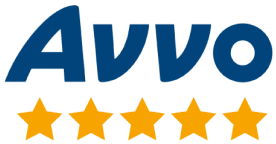
The main video on the homepage of the Law Offices of Cheryl David introduces the firm's commitment to providing compassionate and personalized estate planning and elder law services in Greensboro, North Carolina. It highlights their dedication to helping clients protect their assets and navigate complex legal matters with clarity and care. The video also emphasizes the firm's experience and the comprehensive range of services offered to meet clients' unique needs.
Proudly Serving North Carolina Since 2000
Estate Planning Attorney in Greensboro, NC
Plan For The Future & Protect Your Assets
The creation of an estate plan is crucial for both you and your loved ones. An estate plan is designed to help you meet important family and financial goals. Located in Greensboro, North Carolina, The Law Offices of Cheryl David, can assist you with many of your future planning needs including the creation of a will or trust, probate or trust administration, Medicaid planning, guardianships, and powers of attorneys. Our firm is ready and available to help you navigate the legal process for the management of your estate.
-
"Friendly & Professional"
Our experience with the Law Offices of Cheryl David was exceptional. Their caring team guided us through our Living Trust with professionalism and efficiency!- Sharon B.

Secure Your Future Our Featured Services


Why Clients Choose Us
Whether you are attempting to resolve a complicated legal matter or you’ve simply decided that it’s time to start planning for the future, you need an advocate. Our team is dedicated to providing you with the experienced representation you need, no matter what the situation may be. Our highly knowledgeable and celebrated staff wants you to feel confident about the choices you make—let us be your trust or wills attorney and guide you on the path toward preserving your family’s future.
As a member of the American Academy of Estate Planning Attorneys, our firm has a wide range of benefits to offer you. This helps to ensure we provide high-quality estate planning services to our clients in Greensboro NC & Guilford County.



Begin Your Planning Journey How to Get Started
-
1Download Your Free WorksheetDownload one of our free worksheets to help you with estate planning, guardianship, or probate.
-
2Complete Worksheet & Gather InfoComplete the worksheet that you downloaded and then begin gathering relevant information.
-
3Schedule an AppointmentCall us at (336) 717-0375 or contact us online to schedule an appointment.







